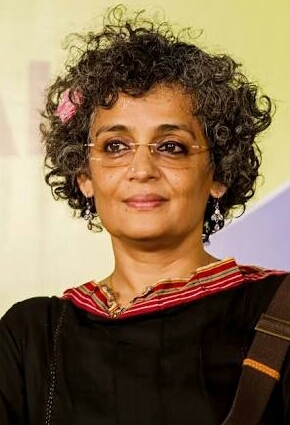The letter argues that Israeli publishers, literary agencies, and festivals who have refrained from speaking out on the crisis are “complicit in genocide.”…reports Asian Lite News
A coalition of nearly 400 writers, including celebrated authors Sally Rooney and Arundhati Roy, has issued a statement advocating for a boycott of Israeli cultural institutions that have not condemned the current Gaza conflict.
Organized by the Palestine Festival of Literature, the letter argues that Israeli publishers, literary agencies, and festivals who have refrained from speaking out on the crisis are “complicit in genocide.”
The letter, yet to be publicly released, claims that the violence constitutes “the biggest war on children this century,” calling for a moral stand against cultural institutions allegedly implicated in justifying or obscuring Palestinian oppression.
The group asserts that cultural institutions in Israel, often operating in collaboration with the government, have sanitized or concealed the impacts of occupation and apartheid on Palestinian communities.
The boycott initiative is being supported by the activist group Fossil Free Books, which has previously pushed for literary festivals to sever ties with controversial sponsors.
ome Booker Prize nominees have also endorsed the letter, adding their voices to the campaign for cultural accountability in the face of what the authors describe as enduring injustice. A complete list of signatories will reportedly be made public soon.
However, the boycott proposal has sparked significant opposition within the literary community. Notably, Lee Child, author of the popular Jack Reacher series, criticized the approach, suggesting that isolating Israeli cultural institutions could inadvertently alienate progressive Israelis who support peace and a two-state solution.
Child argues that Israel’s left-wing artists and cultural figures are valuable allies for Palestinians and advocates for engaging with them to build bridges rather than enacting a sweeping boycott. He contends that withdrawing cooperation risks undermining the Palestinian cause by alienating potential supporters within Israel.
Further objections came from Larry Finlay, former head of publishing at Transworld Books, who argued that the boycott misdirects anger at individuals who are often opposed to Israeli government policies.
According to Finlay, this indiscriminate approach risks penalizing Israelis who align with leftist ideologies and oppose the policies of Prime Minister Benjamin Netanyahu, raising concerns about promoting hate over constructive criticism.
This debate over the cultural boycott reflects broader tensions within global activism, particularly in addressing how to engage constructively with cultural institutions in politically charged conflicts.
While advocates argue that boycotts can highlight oppression and apply pressure, critics worry they can inadvertently hinder dialogue and alienate potential allies on both sides.
ALSO READ: ‘Spain is an important partner within EU’

Leave a Reply